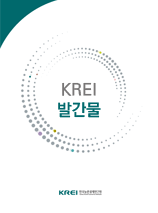
- Trend of and Supporting Agri-food Exporters
-

-
The volume of exported agricultural, forestry and livestock food was $5.6 billion (other than fishery food products) in 2012, the greatest in history, showing the tendency of continued increase. While free trade agreement with other countries continues to be made to shrink the agricultural sector, the significantly growing volume of export is owed mainly to government’s operation of the export support system together with the effort of related institutions as well as farmers. The Korean government supports finding new markets, promoting sales of agricultural and livestock products, and supporting purchase of quality agri-food, in order to increase farmer’s income and to develop the food industry by encouraging export of agri-food. The increased volume of exported agri-food contributes to the export industry of the agricultural sector, creating new demands and stabilizing prices of Korea’s agricultural products.
Nevertheless, there are some issues involved in export and operation of the export system. The first issue is the increasing export logistics cost in the process of export, and too much competition between export companies. This results in dropping the unit export cost over time.
Because many farmers switch the volume of exported agricultural products to the volume for domestic sale when the Korea’s agricultural product prices rise due to weather conditions or peak seasons, it is hard to constantly ensure the volume of exported agricultural products. There are ongoing problems of no substitute policy prepared for abolishing the government support system in the form of direct subsidy, for example, supporting export logistics cost to operate the export system, a limit to effective operation of the government support system, for example, supporting export logistics cost or supporting leading export organizations, no encouragement of farmers for exporting agricultural products, and insufficient support for strategic overseas marketing.
First, there is a need of maximizing the outcome by improving the efficiency of operating major export support programs in order to establish an export industry for agri-food by encouraging export of agri-food. That is, it is necessary to guide poor export companies to be ruled out by differential support for peak export seasons and non-peak export seasons. It is necessary to specify the leading export organization support program centered at unions or export associations, not individual companies. Second, it is necessary to put more support budget for finding new markets, and to establish a compulsory foreign exchange risk insurance and a short-term export insurance on the condition of export logistics cost support to cope with fluctuating foreign exchange rate. Third, it is necessary to promote export of specialized local products in connection of the government with local bodies. It is urgent to develop a system to replace support programs that are more likely to be discarded, and to switch direct aid to indirect support. Fourth, it is necessary to adopt a stabilized price insurance for exported agri-food to absorb a part of sale prices by farmers if the prices of products sold in Korea sharply rise after export contract to ensure the constant volume of exported agri-food. -
목차
요약문
The volume of exported agricultural, forestry and livestock food was $5.6 billion (other than fishery food products) in 2012, the greatest in history, showing the tendency of continued increase. While free trade agreement with other countries continues to be made to shrink the agricultural sector, the significantly growing volume of export is owed mainly to government’s operation of the export support system together with the effort of related institutions as well as farmers. The Korean government supports finding new markets, promoting sales of agricultural and livestock products, and supporting purchase of quality agri-food, in order to increase farmer’s income and to develop the food industry by encouraging export of agri-food. The increased volume of exported agri-food contributes to the export industry of the agricultural sector, creating new demands and stabilizing prices of Korea’s agricultural products.
Nevertheless, there are some issues involved in export and operation of the export system. The first issue is the increasing export logistics cost in the process of export, and too much competition between export companies. This results in dropping the unit export cost over time.
Because many farmers switch the volume of exported agricultural products to the volume for domestic sale when the Korea’s agricultural product prices rise due to weather conditions or peak seasons, it is hard to constantly ensure the volume of exported agricultural products. There are ongoing problems of no substitute policy prepared for abolishing the government support system in the form of direct subsidy, for example, supporting export logistics cost to operate the export system, a limit to effective operation of the government support system, for example, supporting export logistics cost or supporting leading export organizations, no encouragement of farmers for exporting agricultural products, and insufficient support for strategic overseas marketing.
First, there is a need of maximizing the outcome by improving the efficiency of operating major export support programs in order to establish an export industry for agri-food by encouraging export of agri-food. That is, it is necessary to guide poor export companies to be ruled out by differential support for peak export seasons and non-peak export seasons. It is necessary to specify the leading export organization support program centered at unions or export associations, not individual companies. Second, it is necessary to put more support budget for finding new markets, and to establish a compulsory foreign exchange risk insurance and a short-term export insurance on the condition of export logistics cost support to cope with fluctuating foreign exchange rate. Third, it is necessary to promote export of specialized local products in connection of the government with local bodies. It is urgent to develop a system to replace support programs that are more likely to be discarded, and to switch direct aid to indirect support. Fourth, it is necessary to adopt a stabilized price insurance for exported agri-food to absorb a part of sale prices by farmers if the prices of products sold in Korea sharply rise after export contract to ensure the constant volume of exported agri-food.저자정보
저자에게 문의
구매안내
KREI의 출판물은 판매 대행사 (정부간행물판매센터)와 아래 서점에서 구입 하실 수 있습니다.
판매대행사
- (주)정부간행물판매센터http://www.gpcbooks.co.kr사이트 바로가기
- 서울특별시 중구태평로 1가 25번지
- TEL 02) 394-0337, 734-6818
- FAX 02) 394-0339
판매서점
판매서점 교보문고 http://www.kyobobook.co.kr/ 영풍문고 http://www.ypbooks.co.kr/ 알라딘 http://www.aladin.co.kr/ 활용도 정보
활용도 정보 상세정보 조회 좋아요 다운로드 스크랩 SNS공유 3364 0 8 0 0 -
- Suggestions to Promote the Hometown Love Donation System
- Gouk, Seungyong
- 2022.11.25
- KREI 이슈리포트
-
- Ten Years of Korea-U.S. FTA: focusing on agri-food trade
- Kim, Kyungphil
- 2022.06.09
- KREI 이슈리포트
-
- Impacts of Ukraine-Russia Conflict on Global Grain Prices
- Kim, Jongjin
- 2022.03.31
- KREI 이슈리포트
-
- The Impacts of the COVID-19 on the Korean Agricultural Market
- Seo, Hong-Seok
- 2020.06.05
- KREI 이슈리포트
-
- 10 Agricultural Policy Issues of Korea in 2019
- Jeong, Minkook
- 2019.01.29
- KREI 이슈리포트
-
- State of Korean and Overseas Markets for Environment-Friendly Agricultural Products and Challenges 2018
- Jeong, Hakkyun; Sung, Jaehoon; Lee, Hyeonjeong
- 2018.09.12
- KREI 이슈리포트
-
- Measures to Establish the Water-Energy-Food Nexus for Agricultural Resource Management
- Sung, Jaehoon; Cho, Wonju; Lee, Hyeonjeong
- 2018.09.05
- KREI 이슈리포트
-
- Changes in the Trade of Agricultural and Livestock Products and Implications after Seven Years from the Enforcement of the Korea-EU FTA
- Song, Woojin; Lee, Hyunkeun; Myeong, Suhwan; Yoo, Juyoung
- 2018.06.29
- KREI 이슈리포트
-
- 10 Agricultural Policy Issues of Korea in 2018
- Kim, Byoungryul
- 2018.01.22
- KREI 이슈리포트
-
- Income Changes by Type of Farm Household and Implications
- Woo, Byungjoon
- 2017.11.30
- KREI 이슈리포트
-
- 10 Agricultural Policy Issues of Korea in 2019
- Jeong, Minkook
- 2019.01.29
- KREI 이슈리포트
-
- Income Changes by Type of Farm Household and Implications
- Woo, Byungjoon
- 2017.11.30
- KREI 이슈리포트
-
- 10 Agricultural Policy Issues of Korea in 2018
- Kim, Byoungryul
- 2018.01.22
- KREI 이슈리포트
-
- Job Creation Potential for the Youth and Challenges in the Agricultural Industry
- Ma, Sangjin
- 2017.01.01
- KREI 이슈리포트
-
- Implementation Plan and Implications of International Development Cooperation Projects for Agriculture in 2017
- Heo, Jang
- 2017.04.28
- KREI 이슈리포트
-
- 2016 Production Status and Market Prospect of Eco-Friendly Agricultural Products at Home and Abroad
- Jeong, Hakkyun; Lee, Hyejin; Kim, Changgil
- 2016.11.30
- KREI 이슈리포트
-
- The Impacts of the COVID-19 on the Korean Agricultural Market
- Seo, Hong-Seok
- 2020.06.05
- KREI 이슈리포트
-
- Global Spread of Saemaul Undong for Rural Development in Developing Countries
- Heo, Jang; Lee, Yoonjung
- 2016.11.30
- KREI 이슈리포트
-
- Goals and Strategies to Reduce Greenhouse Gas Emissions in the Agriculture Sector
- Jeong, Hakkyun; Kim, Changgil
- 2015.11.03
- KREI 이슈리포트
-
- 70 Years' Achievements and New Challenges of Korean Agriculture and Rural Communities
- Song, Miryung; Moon, Hanpil; Kim, Meebok; Seong, Jooin; Lim, Jieun
- 2015.09.15
- KREI 이슈리포트
의견남기기


